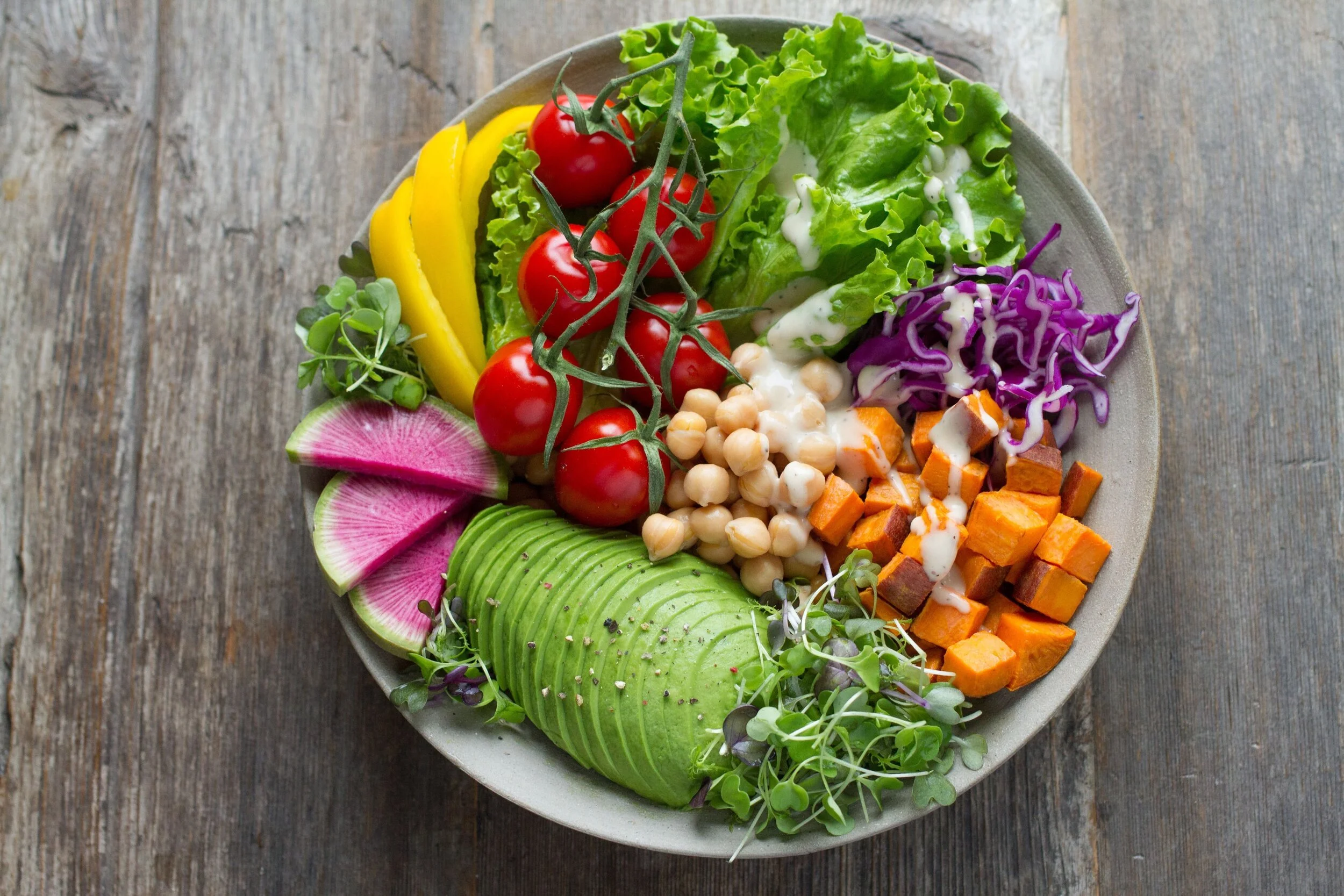6 Ways to Lower Blood Sugar Levels, Naturally
High blood sugar occurs when your body cannot transport sugar (glucose) into your cells. This is often thanks to a high sugar/high-carb diet, which jam-packs the cells with sugar, to the point that they can’t accept more.
When this continues, unabated, you can develop insulin resistance, weight gain, pre-diabetes and type 2 diabetes. Diabetes rates in Australia sit at around 5.1 percent, according to the Australian Bureau of Statistics, up from 4 percent at the previous Census. Most Aussies suffering from diabetes, have type 2 diabetes, which is strongly linked to diet.
As Type 2 diabetes is a dietary disease, why not learn how to lower your blood sugar levels with diet? Simple changes in what you eat and how much of it, complemented by stress-busting lifestyle habits, can balance your blood sugar sans medication. If you on any medication, please advise your doctor before a diet and lifestyle revamp. The below recommendations can have powerful results, necessitating a dose adjustment.
Exercise Right
There is a wrong way to exercise, when you suffer from irregular blood sugar. Over-training and anaerobic exercise up the level of stress hormone, cortisol, in your body. Stress is a major mechanism in diabetes and must be alleviated to bring about good health.
Light aerobic exercise, like jogging, brisk walking, swimming, cycling – anything that gets your heart jamming – is the way to go. You want to raise your heartrate so that you can comfortably maintain a conversation, but not so that your body is pushed into an anaerobic state. Wearing a heart monitor will help you to modify your workout, so that it isn’t too taxing.
Aerobic training increases your sensitivity to insulin, reducing your risk of insulin resistance. Another positive effect is weight loss. Reduced visceral body fat takes pressure off your organs and reduces ghrelin production. Known as the hungry hormone, ghrelin ups your appetite and encourages fat storage - find out more here. Fat that sits on your organs, embedded in your muscles, correlates with high blood sugar. Burning it off will support healthy organ function and promote a healthy insulin response, stabilising blood sugar levels.
2. Reduce Carbohydrate Portions
Our bodies break down carbohydrates into glucose. In any form, carbohydrates are essentially sugar – the only thing that differs is how quickly they are converted to sugar. Refined carbs, like white bread, cereal, rice and sugar spike blood sugar quickly, so it’s important to sub these for nutrient-dense complex carbohydrates, like sourdough spelt bread, quinoa, legumes, wild rices and veggies. Low-carb diets lower blood sugar levels and avert rapid spikes in blood sugar, preventing haywire glucose metabolism. Learn more about that here.
Some balk when they hear ‘low-carb diet’, assuming they’ll never feel full or energetic again, but that’s a misconception. When you switch refined carbs for their fibre-rich, complex cousins, you’ll feel full – minus the sugar spikes. It’s as easy as swapping white rice for cauliflower rice, white sugar for coconut sugar and white potato for sweet potato and carrot. Be sure to round out meals with healthy fats in the forms of seeds, nuts, avocado, coconut products and oily fish, to help your body process the carbs and fill you up.
3. High-Fibre Foods
One happy side effect of a low-carbohydrate diet is high fibre intake. Many low-carb veggies, like broccoli, sprouts and leafy greens, are incredibly fibrous, slowing digestion and providing a slow, sustained release of glucose, giving you consistent energy levels. High-fibre foods are great for blood sugar stabilisation and also for your bowel motions.
Add a handful of leafy greens at lunch and dinner, or one extra vegetable. If you’re having sugar cravings, reach for an apple or banana instead of a donut. These simple changes will up your fibre intake and avoid blood sugar spikes.
4. Reduce Stress
Stress is a HUGE factor in blood sugar regulation. When I see clients, who cannot control their blood sugar through diet, there is typically chronic, underlying stress at hand. You could be eating the most nutritious, low-carb, low-GI diet and stress could still spike your blood sugar. Stress encourages fat storage and inflammation, resulting in weight gain.
While some have success reducing stress with meditation and yoga, many of my clients have benefited greatly from one-on-one assistance, to pinpoint and alleviate their stressors. Stress is a multilayered problem, involving a stung-out nervous system, which can rewire the brain. I am hugely passionate about this area, having helped many people find reprieve from stress and balance their blood sugar. If you have tried regulating your blood sugar with diet, to no avail, please be in touch and we can begin getting you some relief.
5. Improve Sleep Quality
Getting enough good quality sleep is essential for healthy bodily function. While we sleep, our brains cleanse themselves of metabolic byproducts that have amassed throughout the day. Scientists are trying to prove that it is the buildup of these byproducts that makes us sleepy.
When we do not get adequate sleep to recover from the day’s exertion, we put ourselves at increased risk of injury and chronic inflammation. Lack of sleep is conducive to irregular blood sugar, increasing our appetite for high-carb foods and raising cortisol levels, which can lead to insulin resistance and weight gain.
I have vivid memories of sleep deprivation, as a mother of young children. If you are experiencing fatigue, please prioritise rest over absolutely everything. Do not over-exercise, try to shed your pregnancy weight or return to work (unless absolutely necessary) until you are getting a good night’s rest, consistently. Sleep deprivation has myriad negative health effects, and blood sugar dysfunction is but one of them.
6. Eat Foods Rich in Chromium, Magnesium and B Vitamins.
These nutrients are essential to carbohydrate metabolism and are easily sapped by a high-carb diet, especially if you have insulin resistance or diabetes. A diet rich in chromium, magnesium and B vitamins will help to stabilise you blood sugar. A high daily dose of magnesium has been found to reverse gestational diabetes in pregnancy.
Be mindful that simply supplementing these nutrients, without changing your diet or lifestyle, is analogous to taking medication – it won’t address the root cause. Focus on getting all you need from foods, while reducing your intake of carbohydrates.
Egg yolk, nuts, green beans, broccoli and meat are great sources of chromium; fish, dark chocolate, bananas, avocados and beans are high in magnesium, while seeds and nuts, legumes, eggs and meat will up your B vitamins. Dark leafy greens are high in magnesium, B vitamins and fibre, making them a superfood for blood sugar balance.
Now you’ve learned how to lower blood sugar levels, naturally, try adding one of the above hacks into your repertoire, each week. See if you can maintain your healthier way of life for at least thirty days, long enough to form new habits and begin feeling the benefits. If you’d like extra support in stabilising your blood sugar, I’d be honoured to help you achieve greater health.
If you’d like to know more about balancing your blood sugar please take a look at my new ebook The Balance my Blood Sugars Guide.





